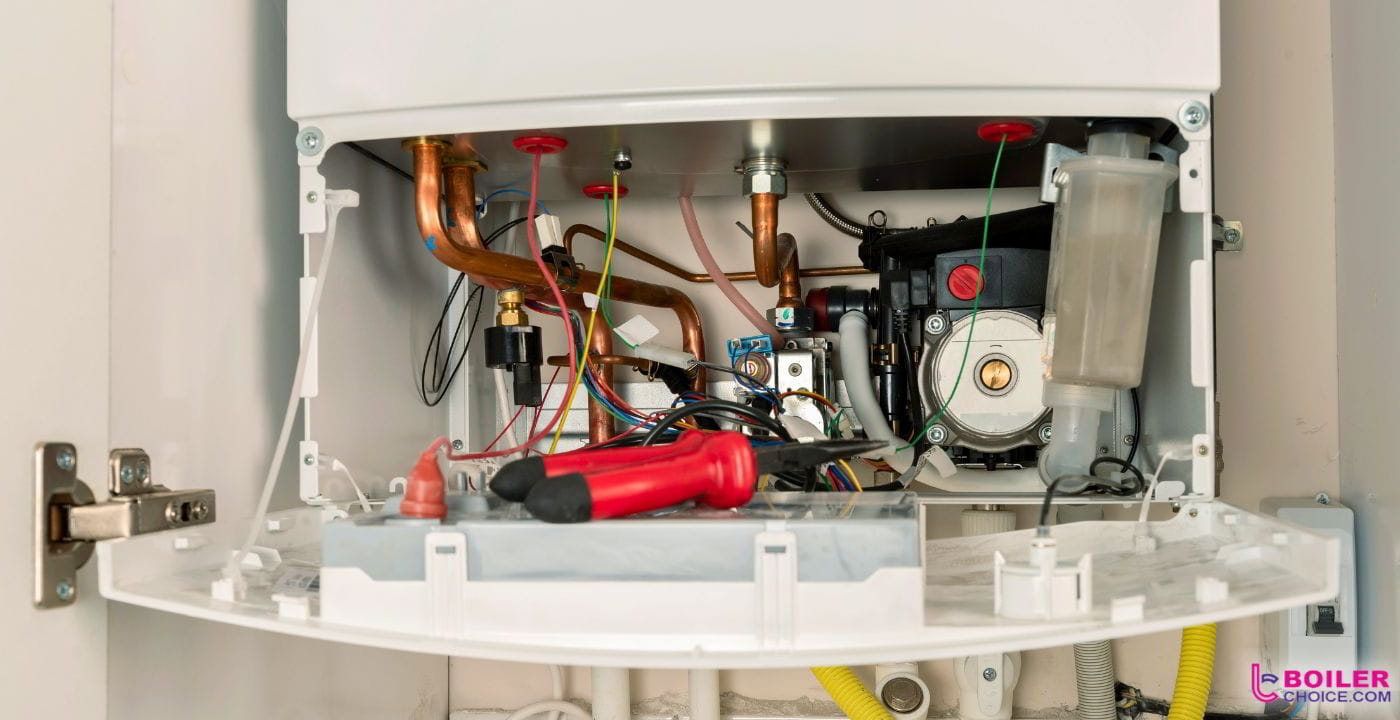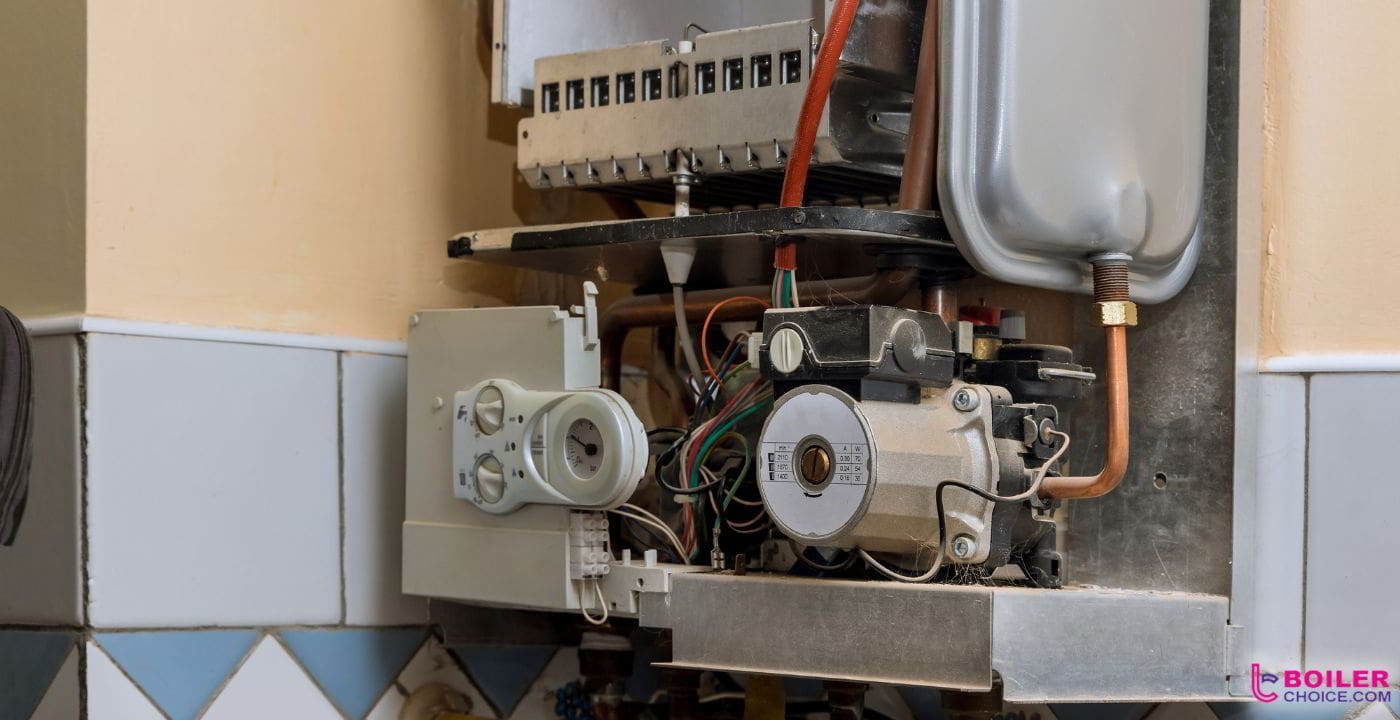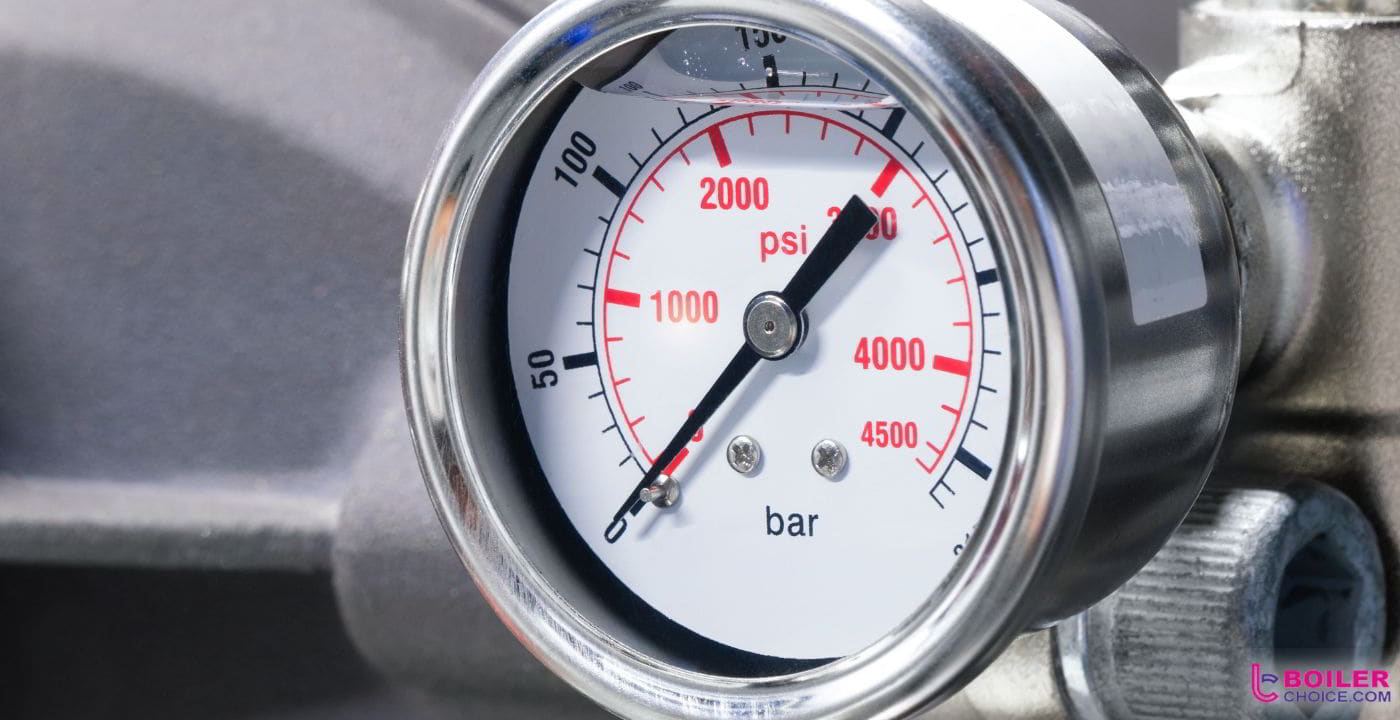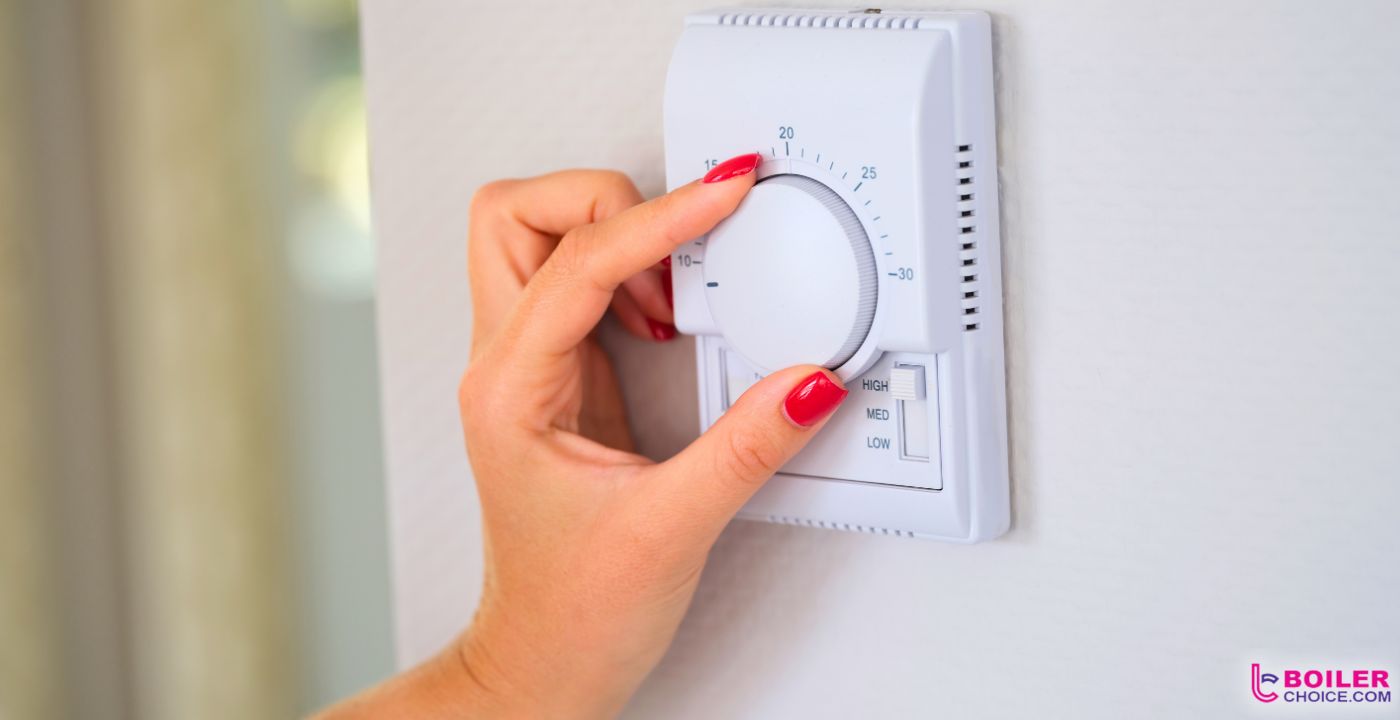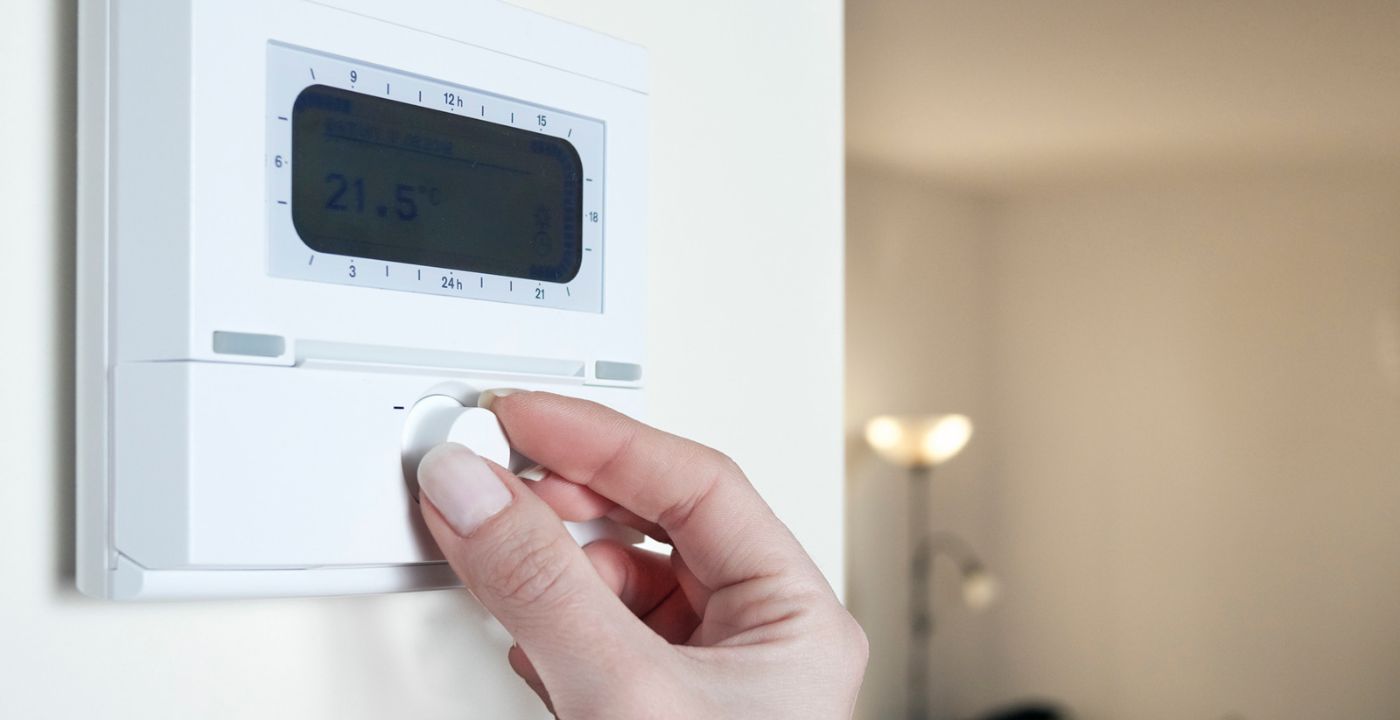
Since the dawn of man, there have been few achievements to compare with harnessing the power of fire. Let’s be honest, nowadays most of us have about as much understanding of how our gas heating works as a neanderthal would. What answer would you provide if someone asked you how gas heating worked?
If your answer is anything similar to the average UK citizen, then read on, as we delve into how gas heating really works!
Key Takeaways
- Gas heating is still one of the most efficient ways to heat your home
- Gas central heating will likely be a cheaper alternative to an electric boiler
- Many contemporary gas boilers are compatible with alternative, green energy sources.
How Does A Gas Boiler Work?
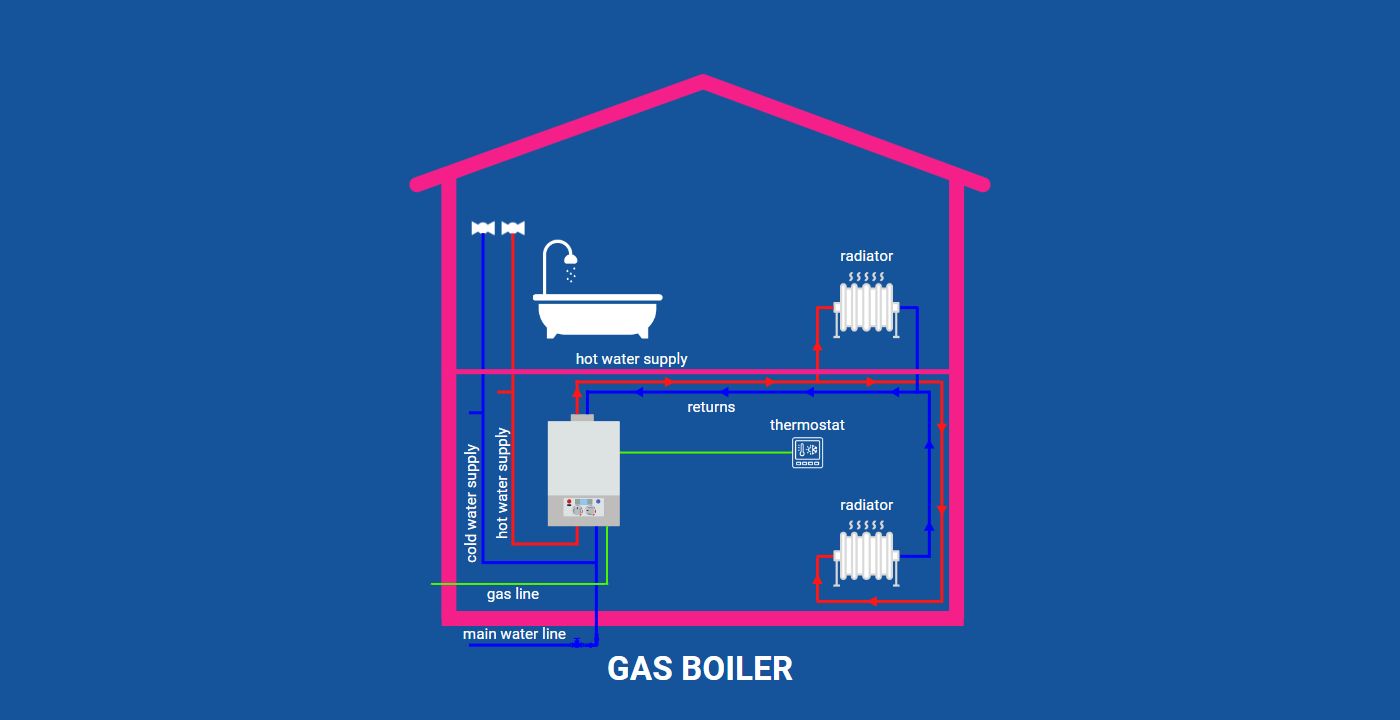
A gas boiler works by burning gas to produce heat. The heat is then transferred to the water in the heating system by a heat exchanger.
The hot water is then circulated around your home through the boiler’s pipework and into your radiators
Sometimes hot air, rather than water, is used and circulated through heating ducts into radiators.
All of this is managed by the thermostat which controls the system by signalling the boiler to turn off or on as required to maintain the target temperature that you have either selected or pre-programmed.
How Does Gas Central Heating Work?
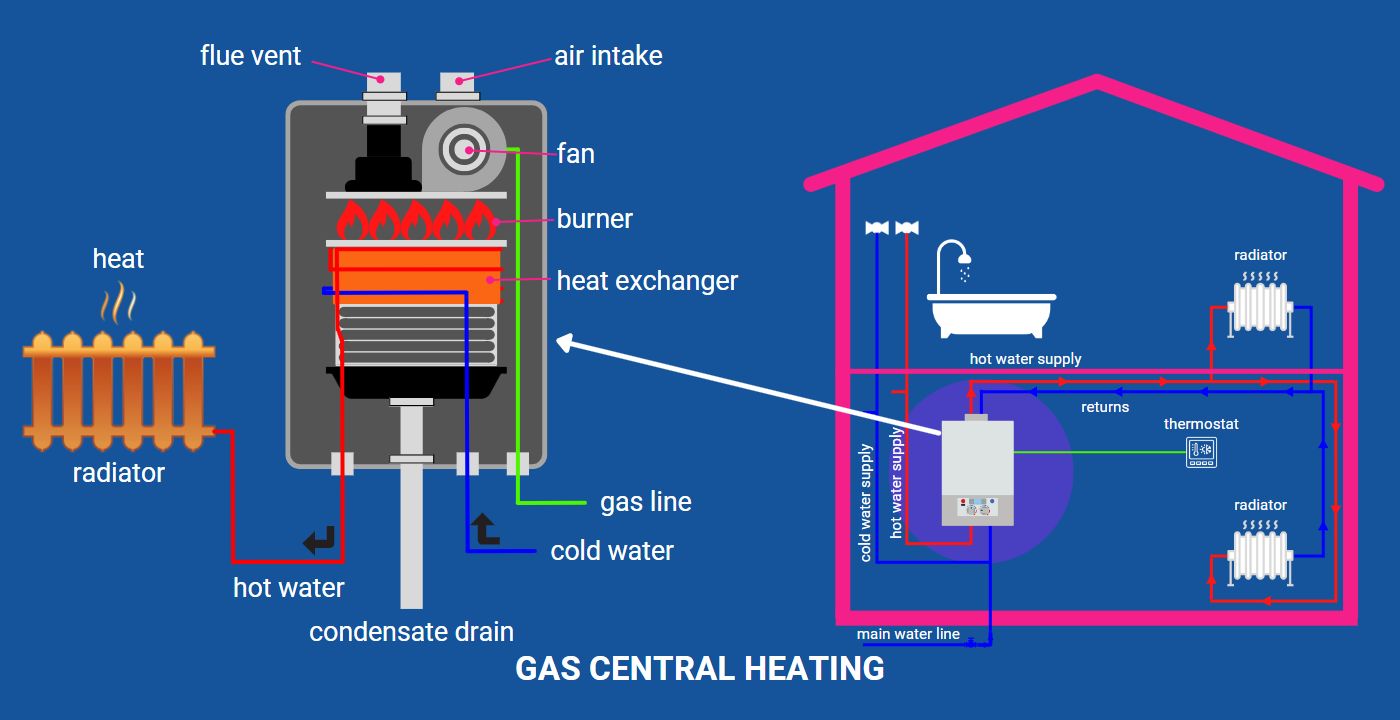
Now that we’ve taken a look at the boilerplate answer, let’s put our foot on the gas and take a more comprehensive look at how central heating works with gas boilers.
Gas Supply
The process starts with your gas supply. Gas heating systems require a supply of natural gas. For most people, this involves receiving their gas via the mains gas supply which is supplied by their energy company. In most other cases, it will come from a storage tank similar to those used in oil heating systems.
Furnace
The furnace is the device that burns gas from your gas supply to produce heat. The gas is ignited by an electronic ignition – in older systems gas boilers used a pilot light, remember those? Once the gas is ignited, the flames heat up a metal heat exchanger.
Heat Exchanger
The heat exchanger is the part of the boiler (esentially a copper pipe with water in it) that absorbs the heat from the flames in the furnace and transfers it to the water that then flows around your central heating system’s pipework.
Exhaust System/Flue
Once the gas is burned inside the furnace and the hot water is doing its thing around your home, the exhaust gases need to be vented outside the building to prevent a carbon monoxide buildup. The exhaust system in contemporary gas boilers is known as the flue. Just like it was on all the old-style wood and other solid-fuel-burning stoves.
Is Gas Still Cheaper than Electricity for Heating?
When you pay for your electricity and gas you are essentially paying for two things. The price of the fuel itself (represented as cost/kWh) and a standing charge (which is where energy companies make their money).
According to OFGEM, under the current Energy Price Guarantee Scheme (which is in place until at least spring 2024) the current prices for electricity and gas are:
| Electricity | £0.34 per/kWh Daily standing charge: £0. 46 |
|---|---|
| Gas | £0.10 per kWh Daily standing charge: £0. 28 |
At current levels, per unit electricity is more than twice as expensive as gas. As such, in almost all cases heating your home and water with gas is going to be cheaper than with electricity.
Frequently Asked Questions (FAQs)
What is Gas-Fired Central Heating?
Gas-fired central heating is just another way of saying gas-fuelled. Which is to say the type of energy that your boiler turns into heat for your home.
How Do I Maintain a Gas Boiler?
Maintaining your gas boiler is important to keep it running efficiently and make it last as long as possible. Generally speaking, the maintenance will be done when you call in the boiler technician for your boiler’s annual service.
In the meantime, you should bleed the radiators every three months to maintain the integrity and efficiency of the pipework.
Conclusion
Knowing how gas heating systems work can be beneficial in a number of ways.
It can help you identify problems earlier, it can inform how you use the boiler to make it more economical, and it gives you the knowledge to keep it in tip-top condition so you can get the most out of your boiler across its 15-20 year lifespan.
We do hope that the information provided here has been of some use. If you would like further details on our top recommended boiler brands then please follow this link.

